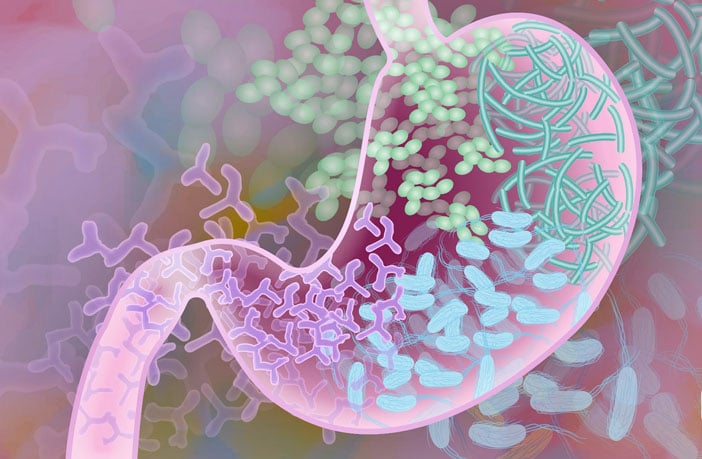A 90% success rate, how many medical procedures can boast of this? One procedure that can is Fecal Microbiota Transplantation (FMT). FMT is a relatively new procedure during which fecal material, containing microbes, from a healthy donor is introduced into a patient.
The human gut houses a complex community of microbes inclusive of bacteria, viruses, fungi, parasites, and archaea. This largely unexplored microbial community, known as the microbiome, is linked to many aspects of human health, such as gastrointestinal diseases and even immune responses. A healthy gut microbiome helps keep pathogenic strains at bay. However, antibiotic treatments or autoimmune diseases disrupt the body’s microbiome and can kill off too many of the ‘good’ microbiota. FMT takes fecal matter from a healthy donor and transplants it into the colon of the patient, replenishing the good microbes that have been lost.
In 2014, Dr. Matthew Hamilton’s lab published a protocol for carrying out FMT in a JoVE article titled, “Fecal Microbiota Transplantation via Colonoscopy for Recurrent C. difficile Infection”. The visualization of this procedure highlights how the FMT procedure can be carried out at any endoscopy center with a high degree of safety and success.
This procedure can be used to treat several disorders, that affect the human gut, such as C. difficile infections, inflammatory bowel disease, Crohn’s disease and even some cases of obesity. Despite the successes with FMT, there are several questions that need further exploration: What factors are important for a good donor match? What are the specific reasons for FMT failures? What factors influence gut microbiota and how? Can synthetic concoctions replace the fecal material in FMT?
Future research in this field will allow us to answer these questions and better understand the mechanisms governing the success or failure of fecal transplants.

